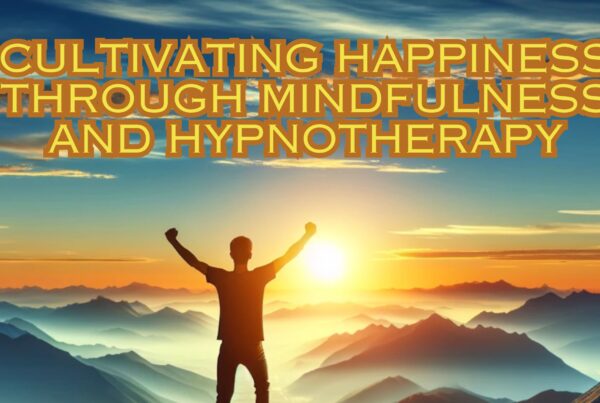The Practitioners Guide To Mirroring Hands
Richard Hill and Ernest Rossi
Mirroring Hands; it’s all in your hands
Is Mirroring Hands an approach that you could benefit from?
For many hypnotherapists who are training, or even continuing their professional development, too often some training can tend to feel the same.
Even recently, US hypnotherapist Scott Sandland posted a video where he blasted trainers who claimed to have a training that had ‘never been seen before’, promising ‘miraculous results’ and who were essentially offering what many could see as a magic bullet to dealing with their clients.
Instead, in that video, he reminded every hypnotherapist out there about the importance of practice; to explore, refine and practice constantly on everyone from their clients during the day to their teddy bear at night, listening back to recordings made of your practice, watching other people practice.
To continue to just show up, be present, observe, learn and become the best we can be NOT from some training that promises the world but from watching, learning, and putting it into practice.
This would seem obvious, wouldn’t it? Yet I know so many hypnotherapists, myself included, who can often feel like we don’t know enough and that someone out there (inevitably) knows more.
The self-doubt can kick in; ‘why would someone want to come and see me?’ We begin to make ourselves the centre of the client’s change process forgetting that our role is simply to create the space, to be in the problem with the client, and to help guide them to their own internal resources and solutions.
We are part of a non-linear process where we can put in whatever energy we want however there are so many other factors that need to be considered in anyone’s change process that is completely outside of our control.
This is where mirroring hands, or more specifically, Richard Hill comes into the picture for me.
As I float up and head back on my own timeline to 2015, I was in the second year of my Diploma of Hypnotherapy. Where I was studying (Academy of Hypnotic Science) in Melbourne had managed to line up some sensational trainers for us over the year. We began the year with the exceptional Rob McNeilly, studied Resource Therapy with Gordon Emmerson himself, and then around the middle of the year (and before I was to head off to Europe for a month), I had this strange unit called ‘Mirroring Hands’ with Richard Hill. This was already a unique experience for me as I was with a group of people that were not my normal class and so I already was in a slightly different state to what I would normally feel with my usual group. I recall I wasn’t feeling too well either but I was truly curious as to what this mirror hands thing was all about.
Richard has a charismatic flair about him that I found immediately appealing. A background in dramatic art, he presents in a way that engages you immediately and his genuine passion for the topic is inspiring. Much like Rob McNeilly and Gordon Emmerson before, this was going to be one of those pieces of training that took my confidence in working with clients hypnotically to a whole new level.
What I especially loved about the Mirroring Hands technique is that it offers so much with such simplicity. It offers a wonderful way to induce hypnosis as well as begins the client’s own ability to problem solve. Our role is to gently guide, to be vague and ambiguous, and to create the space for the client to work in. Obviously, there is far more behind all of this and in the book ‘The Practitioner’s Guide to Mirroring Hands’, the hood is certainly lifted so that you can see each part of the engine. In fact, I’d argue that the book is so detailed that it probably goes into other parts of the car because it would recognise the engine as bar part of the system that is the car.
Within the book, there is an exploration of the four-stage creative cycle that makes up the process; the information stage where something new elicits interest and attention towards the new information, the incubation stage where that information is then assessed for personal relevant, the illumination stage where discovering that relevance or meaning or purpose is often in a moment of insight or realisation that results in a burst of creativity of personal value, and lastly the verification stage where after that burst of energy, there is a new to pause, contemplate, review, revise and integrate what has changed.
At the end of that training, I felt like I had experienced something truly unique, practical, gentle and inspiring. Some may look at what is listed above and perhaps consider it a form of parts therapy although it tends to feel so much higher level than that. I received a real insight into what it was about this technique that had captivated Richard Hill for so long and had created that path of joy for him to pursue and to spend that time questioning Ernest Rossi. The book transcribes many conversations that were had between Rossi and Hill, including the origins of the technique going back to days with Erickson and David Cheek. It’s a fascinating read that steps away from being too academic but certainly scientific enough to feel like a well-researched body of work.
When I reflect on the genuine but sincere anger of Scott Sandland in his recent video, it made me really reflect on the multiple training that I have invested in over time. I would say that I have been a course junkie in the past although I can probably count on one hand the number of people who have had an impact on me in a way that brought me closer to who I genuinely am as a hypnotherapist. When you find those pieces of training that preach about discovering who you are and what you bring to this process instead of being an imitation (and inevitable a poorer one) of the person who is training you, then these are the training opportunities that I believe honestly are worth every dollar spent. For that, I certainly thank Richard Hill and I encourage anyone who has the opportunity to train with him and/or to read his work to absolutely do so because this is a knowledge that you can apply to not only your client’s ability to change but also your own.
For more information about the upcoming Melbourne Mirroring Hands training, click here.
For more information about Richard Hill, check out his website.
You can purchase ‘The Practitioner’s Guide To Mirroring Hands’ on Amazon and I can wholeheartedly also recommend the Audible version read by Richard Hill himself (12 hours of wonderful content).
You might also like to read:
To Script Or Not To Script… That Is The Question
Book Review: The Subtle Art of Not Giving a F*ck
Book Review: The Holistic Guide To Hypnothearpy Volume 1
Book Review: ACT Made Simple








